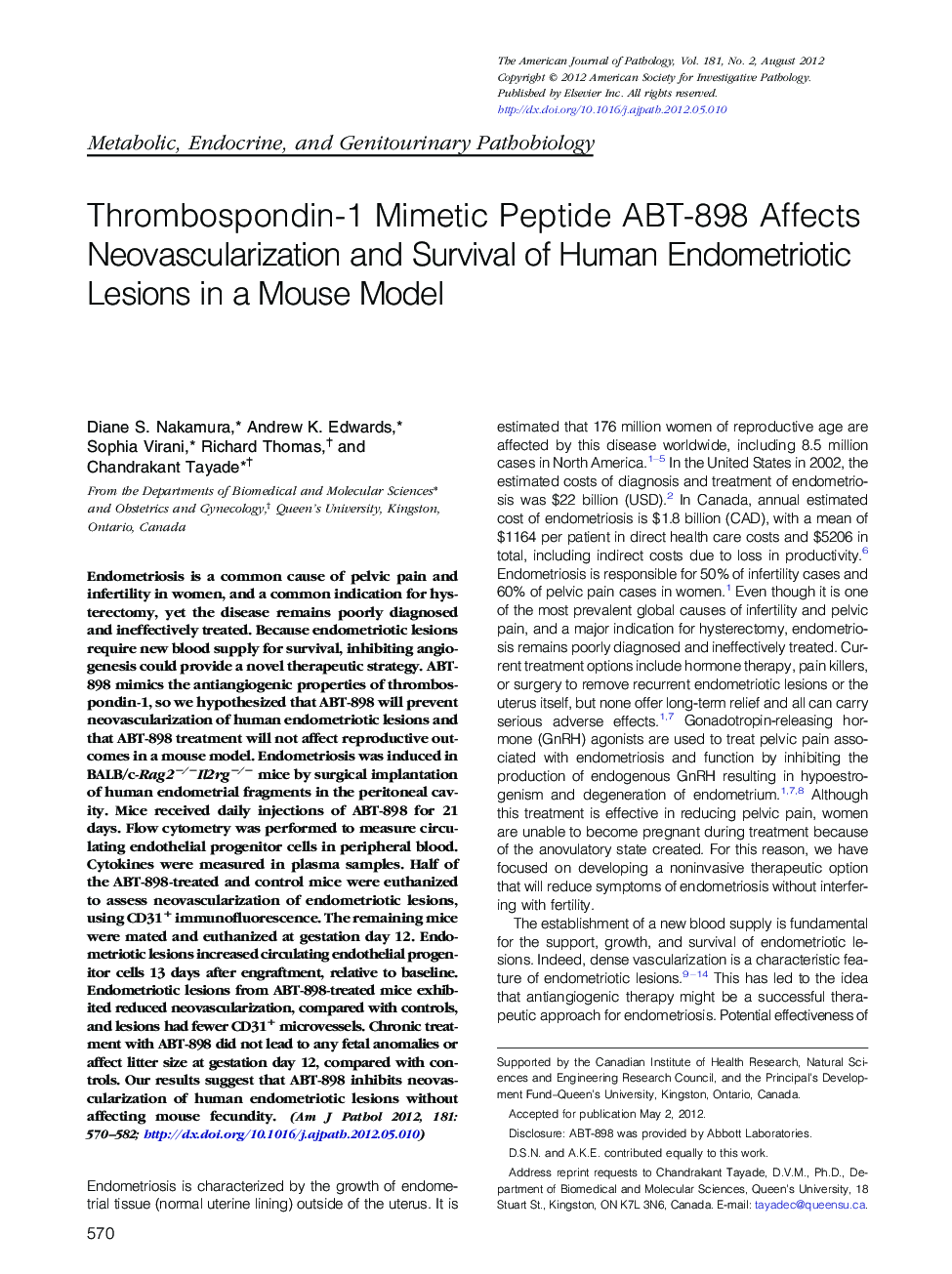| Article ID | Journal | Published Year | Pages | File Type |
|---|---|---|---|---|
| 5933426 | The American Journal of Pathology | 2012 | 13 Pages |
Abstract
Endometriosis is a common cause of pelvic pain and infertility in women, and a common indication for hysterectomy, yet the disease remains poorly diagnosed and ineffectively treated. Because endometriotic lesions require new blood supply for survival, inhibiting angiogenesis could provide a novel therapeutic strategy. ABT-898 mimics the antiangiogenic properties of thrombospondin-1, so we hypothesized that ABT-898 will prevent neovascularization of human endometriotic lesions and that ABT-898 treatment will not affect reproductive outcomes in a mouse model. Endometriosis was induced in BALB/c-Rag2â/âIl2rgâ/â mice by surgical implantation of human endometrial fragments in the peritoneal cavity. Mice received daily injections of ABT-898 for 21 days. Flow cytometry was performed to measure circulating endothelial progenitor cells in peripheral blood. Cytokines were measured in plasma samples. Half of the ABT-898-treated and control mice were euthanized to assess neovascularization of endometriotic lesions, using CD31+ immunofluorescence. The remaining mice were mated and euthanized at gestation day 12. Endometriotic lesions increased circulating endothelial progenitor cells 13 days after engraftment, relative to baseline. Endometriotic lesions from ABT-898-treated mice exhibited reduced neovascularization, compared with controls, and lesions had fewer CD31+ microvessels. Chronic treatment with ABT-898 did not lead to any fetal anomalies or affect litter size at gestation day 12, compared with controls. Our results suggest that ABT-898 inhibits neovascularization of human endometriotic lesions without affecting mouse fecundity.
Related Topics
Health Sciences
Medicine and Dentistry
Cardiology and Cardiovascular Medicine
Authors
Diane S. Nakamura, Andrew K. Edwards, Sophia Virani, Richard Thomas, Chandrakant Tayade,
